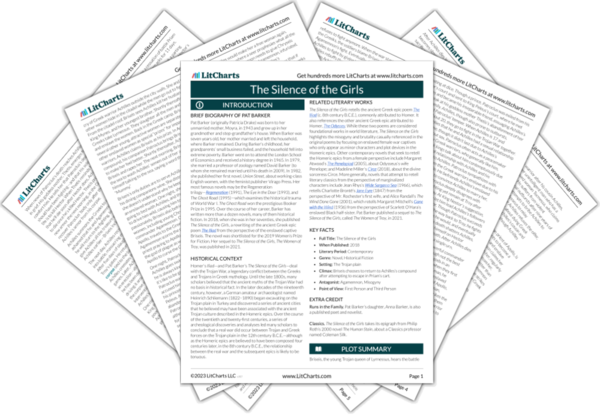Earlier in the novel, Briseis scorned enslaved women who still wore aristocrats’ veils as insane. And, to some degree, she appreciated the freedom of movement and sight that losing her veil afforded her. Yet having her veil forcibly removed still makes her feel like “a whore in the marketplace,” a description that underscores how the veil in this culture symbolizes a single man’s sexual possession of a woman in contrast with potentially many men’s sexual abuse of a woman. When Patroclus claims that Briseis knows why he brought her wine that first night, it’s possible he’s implying that he knew Achilles would rape her and thought wine would dull the trauma for her. It is “too difficult” for Briseis to accept this meaning because she doesn’t want to think of Patroclus, one of her only friends, as complicit in her rape—though he clearly
is complicit in the hierarchical slave society that enables her rape.


